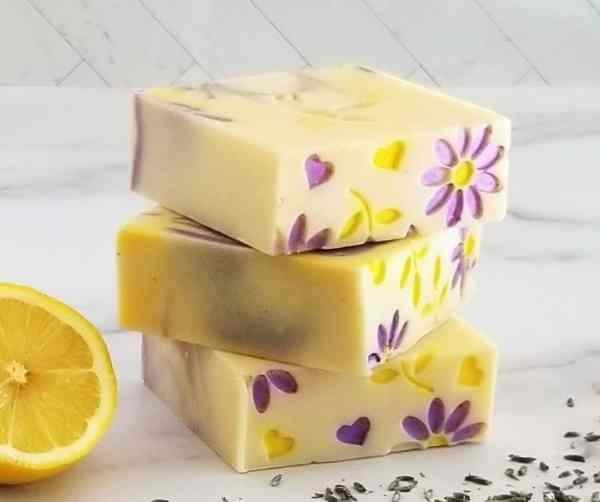When it comes to handmade soap or mass produced commodity detergent bars, we are well versed in the age old question:
“Is It Really Worth the Price? ”
While the personal care and body products you find on grocery and drug store shelves are undoubtedly convenient and economically priced, they lack the finesse only found in those which have been made by human hands. This finesse encompasses a level of skill that artisan soap makers have been formulating and perfecting for millennia; skills which are not utilized in bars mass produced using continuous batches and machinery convenience, and most importantly, as outlined in this article, harsh detergents and dangerous chemicals.
The same methods that keep mass produced bars convenient and economically priced on the store shelves are the same which go directly against the art of soap creation, an art that has been perfected over the course of thousands of years. The mastery of soap making dates all the way back to the time of Babylon, and excavations within the region have found that Babylonians were perfecting their soap making recipes as early as the year 2800 BC.
Now, what exactly does this have to do with the comparison of artisan soap making versus mass-produced? Probably more than you’d think! Because soap making is a craft that has taken thousands of years to develop and perfect, certain skills associated with the creation of soap have been simultaneously developed as well. These skills require human hands, personal techniques and unique recipes developed over each soap maker's careers to translate into high-quality artisan soap, and they’re not quite replicable by the machines actually producing the bars you’ll find on your average store shelf.
Rather than being made individually in small batches using a process tried and tested throughout the ages, soap factories will typically make huge and continuous flowing batches with the aid of hundreds of hands or heavy machinery. Mass produced body bars are often made by combining detergents, lathering agents and synthetic ingredients, and can by definition not be called soap. If you don't see the word "soap" on the label. it's not true soap. It's syndet; a blended word made by combining the words “synthetic” and “detergent.”
Here's what the FDA says:
“Today there are very few true soaps on the market. Most body cleansers, both liquid and solid, are actually synthetic detergent products. Detergent cleansers are popular because they make suds easily in water and don't form gummy deposits. Some of these detergent products are actually marketed as "soap" but are not true soap according to the regulatory definition of the word.”
To Us, It's Personal
After all, what's more personal than what you use to cleanse your body's largest organ, your skin? With commodity soap batches so large, it would be a physical impossibility for the soap to experience the same quality assurance, personal care, and developed technique as one would find in an artisan product, and therefore may not be able to meet the quality criteria set for a product that is to be placed on the skin. With artisan soap, you can rest assured that what you're putting on your skin is something that has been created with personal care.
Isn't All Handmade Soap Created Equal?
This is perhaps the most enduring and frustrating myth in the artisan soap crafting community. A soap is only as good as its ingredients. Each artisan soap maker spends countless hours of testing tens of ingredient combinations before they are satisfied with the properties of their own unique recipe.
Soap making oils each have different fatty acid makeups and the percentage of each of those fatty acids contributes specific attributes to the quality to the finished soap bar. The chemical reaction in soap making is called saponification; combining oils or fats with lye and a liquid. Once the process of saponification is complete, the lye and oil molecules have combined and chemically changed into soap and glycerin. The eight ingredients in Island Thyme Soap Company's base recipe; coconut milk, olive oil, coconut oil, avocado oil, organic and sustainably sourced palm and palm kernel oil and mango butter. We selected these food-grade oils and butters to produce the best combination for the desired luxury soap attributes. We also wanted to formulate a long lasting bar that would create a generous creamy lather, with big bubbles for gentle cleansing. And unlike commodity bars, we don't strip out the naturally produced glycerin. Glycerin is a humectant. It attracts moisture to the skin.
Island Thyme Soap Company believes handmade soap should be beautiful, gentle, long lasting and smell amazing.
When comparing natural, handmade, and traditional artisan soaps with the mass-produced varieties so often lining store shelves, a simple and similar comparison to make would be that of a microwave dinner to a home cooked meal. While one may offer economic efficiency and convenience, the other provides you with a way to translate tradition, skill, and artistry into a form of body pampering and nourishment, which is precisely the artisan way!
Your skin knows the difference between luxurious handmade soap like the true soap crafted by Island Thyme Soap Company, and now you do too!


